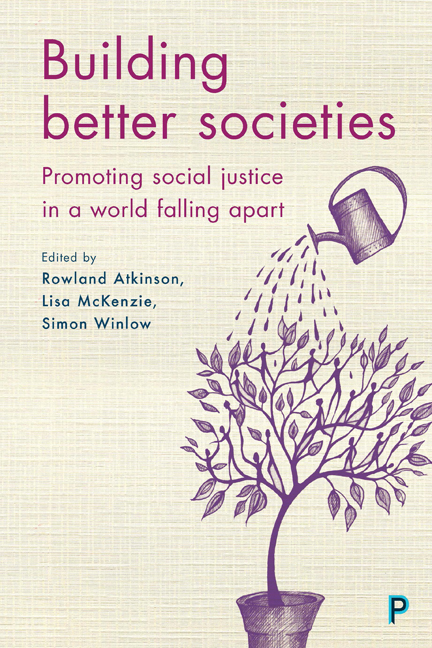Eleven - Cities, crises and the future
Published online by Cambridge University Press: 05 April 2022
Summary
Our world is simultaneously disarticulated and re-articulated under the multiple impacts of terrorism, globalisation, migrations, inequalities, populism, xenophobia, intellectual upheaval and institutional shortcomings regarding global warming, among other key challenges of our time. In this context, the city has become unstable as an object of thought and action. In this chapter, I first intend to show how, in the 1960s, in the US as in France, state planners and public technocrats’ neglect for democratic public space contributed to social and racial problems in inner-city areas, while also allowing private developers and landowners to grab public space for profit, thus further strangling the social possibilities of the city. There was, however, little denunciation of such trends due to a form of hegemony inspired by neoliberalism stifling dissent. Even when massive discontent, protests, strikes and demonstrations by the dispossessed were given visibility, there was no reverse to the free market ideology and policies of laissez faire. Second, I focus on public space as a lens for understanding larger processes in the city, and as a kind of laboratory for claims, protests and cultural insubordination. Forms of resistance in these sites are currently boosted by the use of social media, but space remains determinant as public spaces may be perceived as contributing to a focus on urban problems. Third, although I reflect on notions of order and disorder that often feed one another, I want to suggest here that disorder is not just a nuisance and an expression of opposition; it may also be a signal that change is possible, or at least it may stimulate the imagination of alternative aspirations.
Reflecting on cities and crises in the 1960s
In the US
The growth of inequalities in US cities and the persistence of a discriminatory society were usually generally ignored in the 1950s by the social sciences, heavily influenced by a search for consensus and by the pluralism of Robert A. Dahl, who optimistically claimed that, ‘in a pluralist, open system, any group could be heard at a crucial point in the decision-process’ (1956, p 145). Few scholars took a critical stand to this position, despite some famous exceptions. There was little urban theory questioning the outcomes of liberal democracy and its philosophy of deregulation and open competition. The potential of cities to produce widespread revolts and protest was often not addressed.
- Type
- Chapter
- Information
- Building Better SocietiesPromoting Social Justice in a World Falling Apart, pp. 141 - 154Publisher: Bristol University PressPrint publication year: 2017



